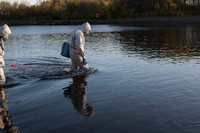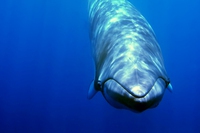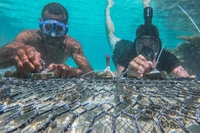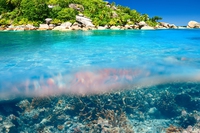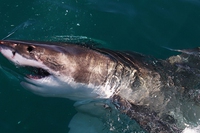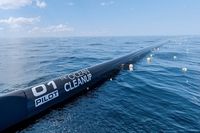
Half of the Great Barrier Reef’s corals have been lost in the last 25 years
A new study raises the alarm on the Great Barrier Reef: in 25 years half of its corals have been lost, mainly due to climate change.
A new study raises the alarm on the Great Barrier Reef: in 25 years half of its corals have been lost, mainly due to climate change.
Toxic substances in Kamchatka’s waters have killed 95% of marine fauna and caused health problems for surfers. The causes, however, are still unknown.
For the first time in seventeen years, Iceland’s two main whaling companies won’t resume whale hunting. The announcement concerns this year’s season but could carry into the future.
The largest coral reef in the world is severely threatened by climate change, but researchers are developing strategies that could contribute to saving the Great Barrier Reef.
Seychelles have extended its marine protected area, which now covers over 400,000 square kilometres, an area larger than Germany.
Great white shark numbers in the Mediterranean Sea have declined rapidly, a new study highlights. The predator’s disappearance would have a significant impact on the entire ecosystem.
A new study finds worrying overlap between shark hotspots and human fisheries in the high seas, leaving these animals little space in the ocean to evade the threat of being caught.
Fishing communities in eastern India are setting an example by protecting endangered olive ridley marine turtles during their annual mating and nesting activities, and helping millions of tiny hatchlings reach the sea safely.
The first Children’s Clean Ocean Summit will take place at the UN’s Vienna headquarters. A platform for young people to speak their minds and draw up a declaration on saving oceans from plastic waste.
The Ocean Array Cleanup invented by Boyan Slat is headed towards the Great Pacific garbage patch where it will begin to gather tonnes of plastic waste accumulated by oceanic currents.
